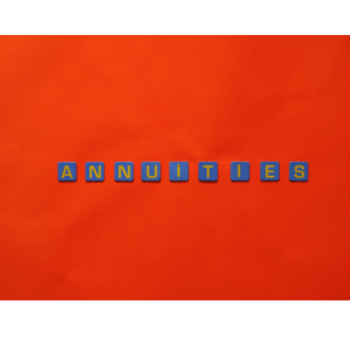
Is Buy and Hold Really Worth it?
With markets taking a dive this year, there are a lot of investors asking that very question. It is a tough pill to swallow if you just got into the market on the first day of trading this year. If that is the case, then it is likely that you have lost more than 20% on your stock market investment in the last 9 months. When that happens, there is a lot of pain involved. With that very pain comes emotion. The emotion that comes is often harmful to long term investing.
What I am seeing right now in the general investing public is a lot of fear. Nobody wants to take any action as of yet. I have seen couples with all-stock (or at least mostly stock) portfolios that are far too risky for their age and risk tolerance. When the market goes down a bit, they are in absolute emotional agony, but they do not want to take any action. They want to “ride it out” as that is what they have been told to do. While there is some wisdom in doing this, there is also danger.
The first danger that exists in this is that the market may not come back quick enough for you to take the distributions that you want at the time you want. In other words, there isn’t enough time left to wait for a market return for your retirement. The only sure-fire solution to this is to work longer (nobody wants to hear that from my experience). By doing that, you can rely on your work to provide you with the income that you need while waiting for the market to come back.
The second danger is if the investor is taking distributions from the nest egg at the time of a market drop. For example, let’s say that the investor wants to retire and live on $4,000 a month from their $850,000 next egg. If that is the case, then if the portfolio is in all stocks, the amount of money that is being taken out every month is NEVER going to have any chance of being successful in the market. The reason is that the money will have already been spent. So the real danger is in the “sequence of return”. That is a risk that is very real in this market environment. If you plan on taking a distribution from stocks, and markets have pulled back, you may want to reconsider doing that if at all possible. You will never make that money back, and “never” is a long time.
So with those two dangers that exist, how can you prevent or at least reduce that danger from happening? While the first part is to not be too risky in the first place. As an advisor wants to get clients, he is not going to be popular with a potential client that has to work longer than they want to work. If the advisor down the street says he has a way to help the client retire sooner, then the one down the street will likely get the business. If he puts the client into too risky of a portfolio, it is not good for the client, but the advisor still gets paid on money that the more realistic advisor got nothing as he didn’t win the business. Make sure you are not looking at the world through rose-colored glasses when selecting an advisor and making retirement decisions.
The second danger is that of “sequence of return” risk. That means that while you are still in the market, if you sell your shares to collect a distribution, you risk selling them at a lower price and never getting that money back again. The way to prevent this is by having money in separate strategies based on the time frame that you need the money. “Stock money” should be in a category that you won’t need for about 10 years or so. For the money you will need sooner, a good general rule is that you should have the least amount of risk for the money you need the soonest and gradually have slightly more risk each year before you need it.
So, if you are thinking about getting out of this market at the levels we are at right now, history shows that it is seldom a good idea. However, there are times when the investor has no choice but to do so. The goal should be to not end up in a situation like that.
If you have any questions on this article, feel free to email me at mtosaw@rcmfs.com.
- Posted by Mike Tosaw
- On October 10, 2022
- 0 Comment


